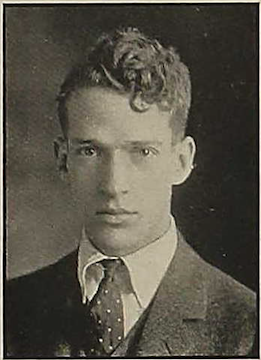
Conrad Salinger
Conrad Salinger (August 30, 1901, Brookline, Massachusetts – June 17, 1962, Pacific Palisades, California[1]) was an American arranger, orchestrator and composer, who studied classical composition at the Paris Conservatoire. He is credited with orchestrating nine productions on Broadway from 1931 to 1938, and over seventy-five motion pictures from 1931 to 1962. Film scholar Clive Hirschhorn considers him the finest orchestrator ever to work in the movies.[2] Early in his career, film composer John Williams spent much time around Salinger.[3]
Recognition[edit]
Although many of the films Salinger worked on were Oscar-nominated for the adaptation of the music featured in them, according to industry practices at the time, nominations usually went to the musical directors/conductors of the music (such as Adolph Deutsch or André Previn), and not to orchestrators. Only once was Salinger nominated, for his Show Boat orchestrations. Ironically, the film An American in Paris, which Salinger also orchestrated, was nominated for the same award that year, so the two films were competing against each other in the Oscar race. But in the case of An American in Paris, the nomination went only to Johnny Green, who conducted the George Gershwin music heard in the film, and not to Salinger. Green won that year; Salinger never received an Oscar.
Despite this lack of popular recognition during his lifetime, Salinger was highly regarded within the film music industry; working steadily and occasionally uncredited (e.g. The Big Country for Jerome Moross). He was content to collaborate with some of the jazzier arrangers on the lot, most frequently Skip Martin and once memorably with Nelson Riddle for High Society (1956). Salinger orchestrated for film the music of all the major popular composers of the mid-20th century, including Irving Berlin, George Gershwin, Rodgers and Hart and Cole Porter.[7] His work on the 1948 biopic Words and Music, led Richard Rodgers to publicly applaud the way their songs were orchestrated and presented.[8] Barbra Streisand insisted on reusing his original orchestrations when they could be found[9] and colleagues, including Stanley Donen, Debbie Reynolds, Johnny Green and André Previn, have subsequently paid tribute to his musical abilities.
Salinger's contributions have gained wider public recognition since the 1970s with the release of the That's Entertainment! compilation films and many of the original soundtracks of his scores on compact discs.[10] The British conductor John Wilson has also been repopularizing his work in a series of concerts and recordings featuring reconstructions of the original orchestrations of the MGM classics.[11]
Final credits[edit]
Salinger died suddenly in 1962, under disputed circumstances. The Internet Movie Database states that he had a heart attack in his sleep, but it is claimed that Salinger committed suicide.[12] He lost his home in the 1961 Bel Air Fire, which police believe may have contributed to his despondency.[13]
The last film that he worked on was Billy Rose's Jumbo, released in 1962. It was not a big success, either critically or commercially. The film was based on a not too successful 1935 Rodgers and Hart stage musical, although the show did produce three hits, "My Romance," "Little Girl Blue," and "The Most Beautiful Girl in the World."
Salinger also composed original music for film and television. Among the A-list film scores he wrote was the 1953 romantic comedy Dream Wife and the 1958 drama Lonelyhearts; some of the TV scores he worked on were those for the late 1950s series Wagon Train and Bachelor Father.